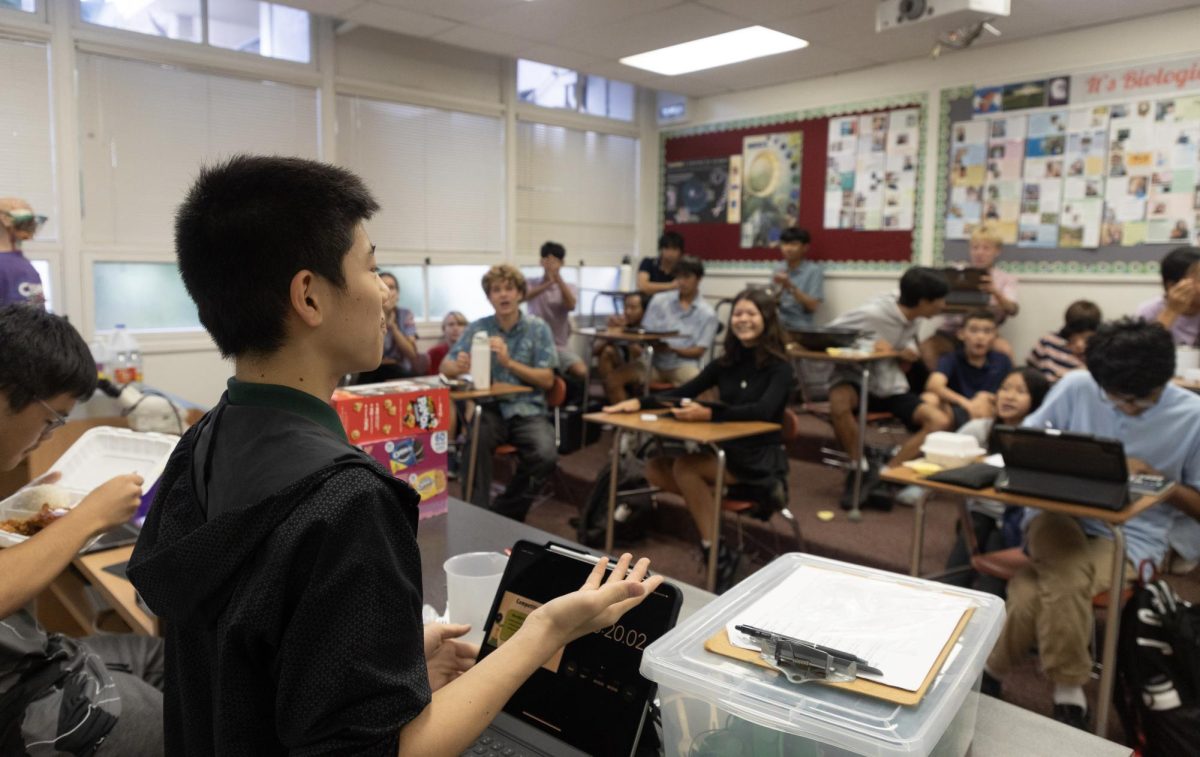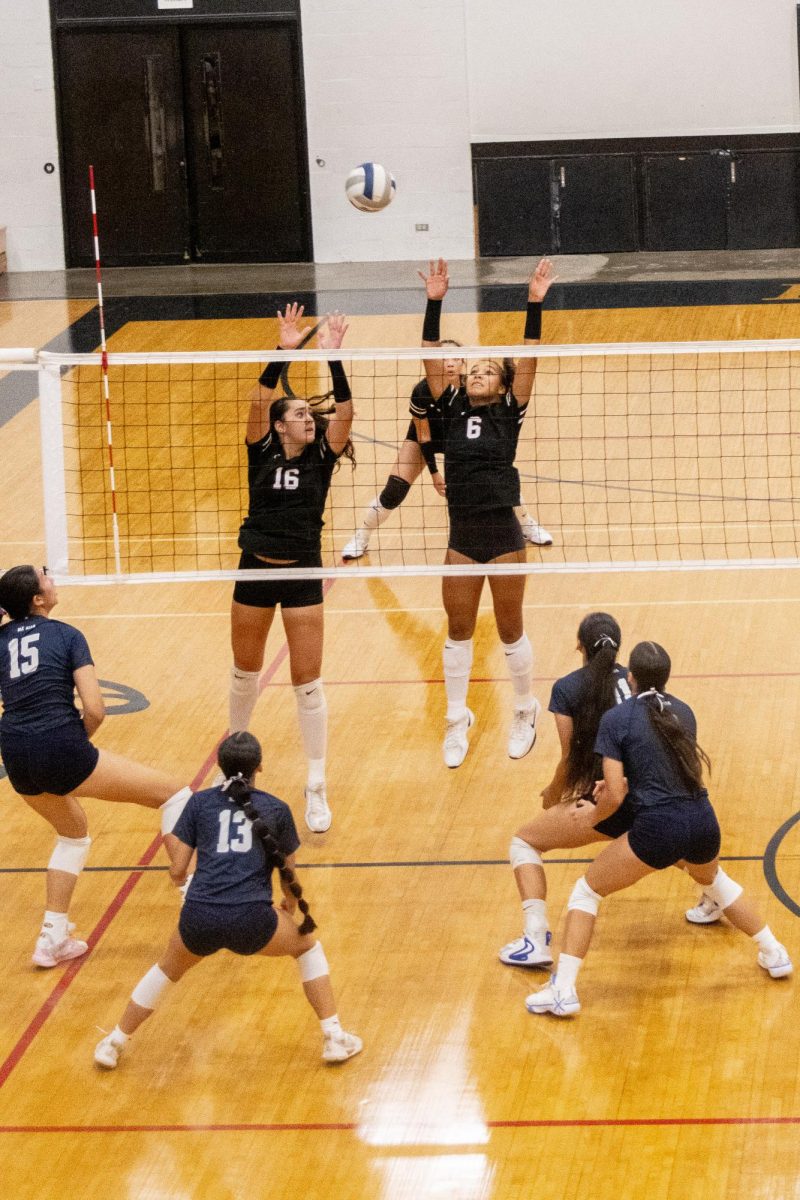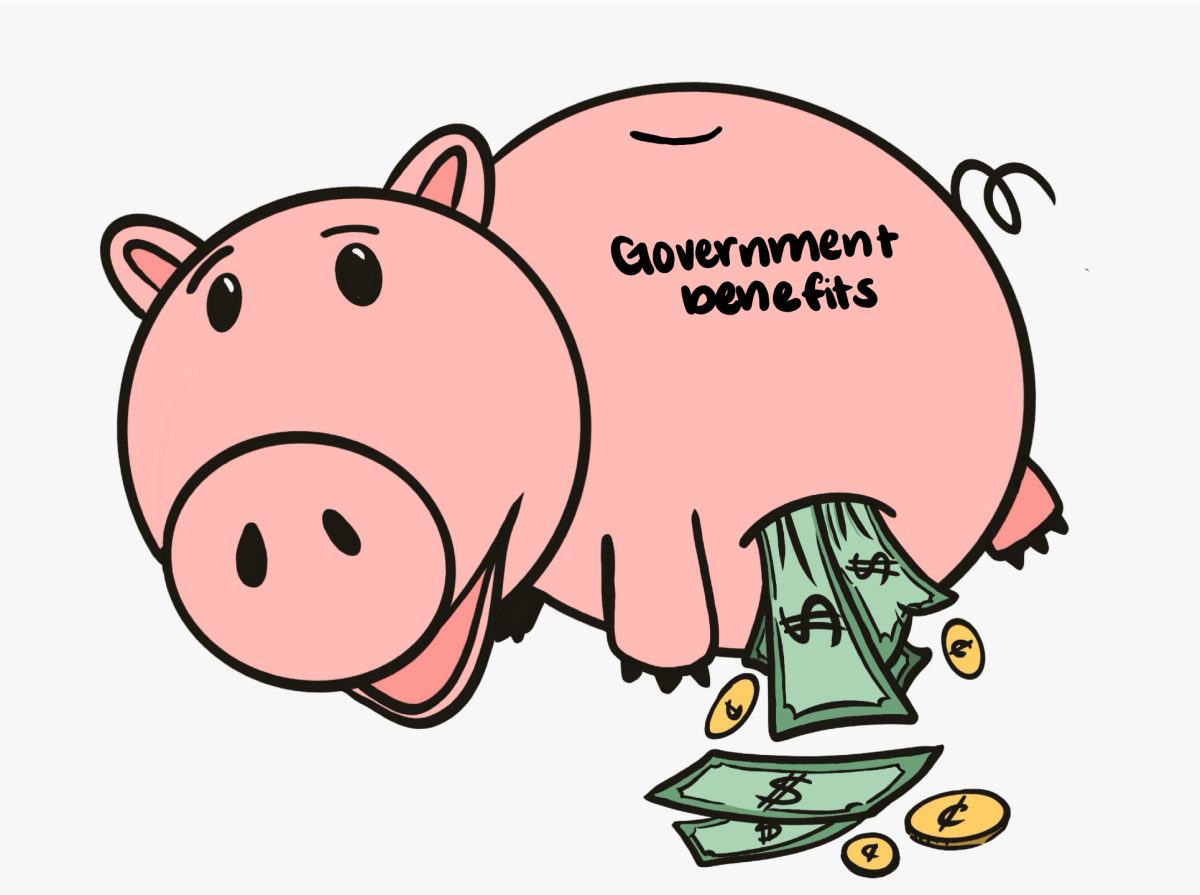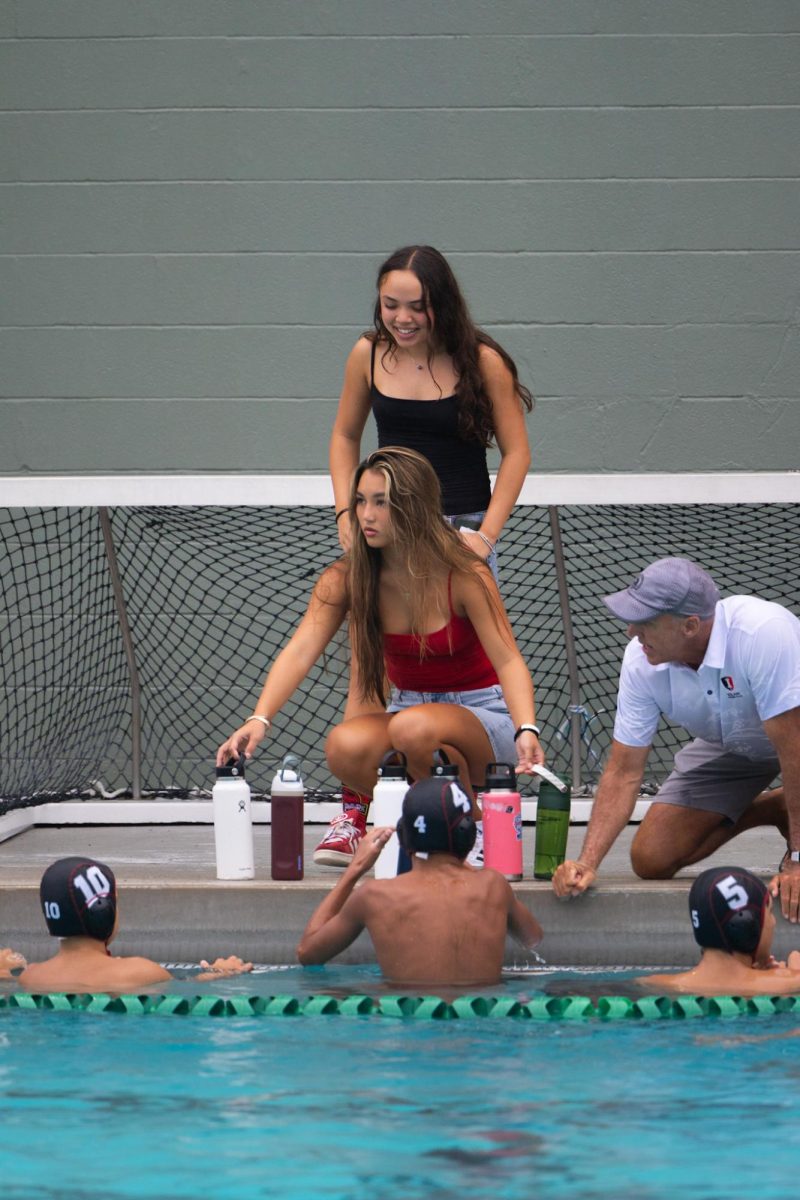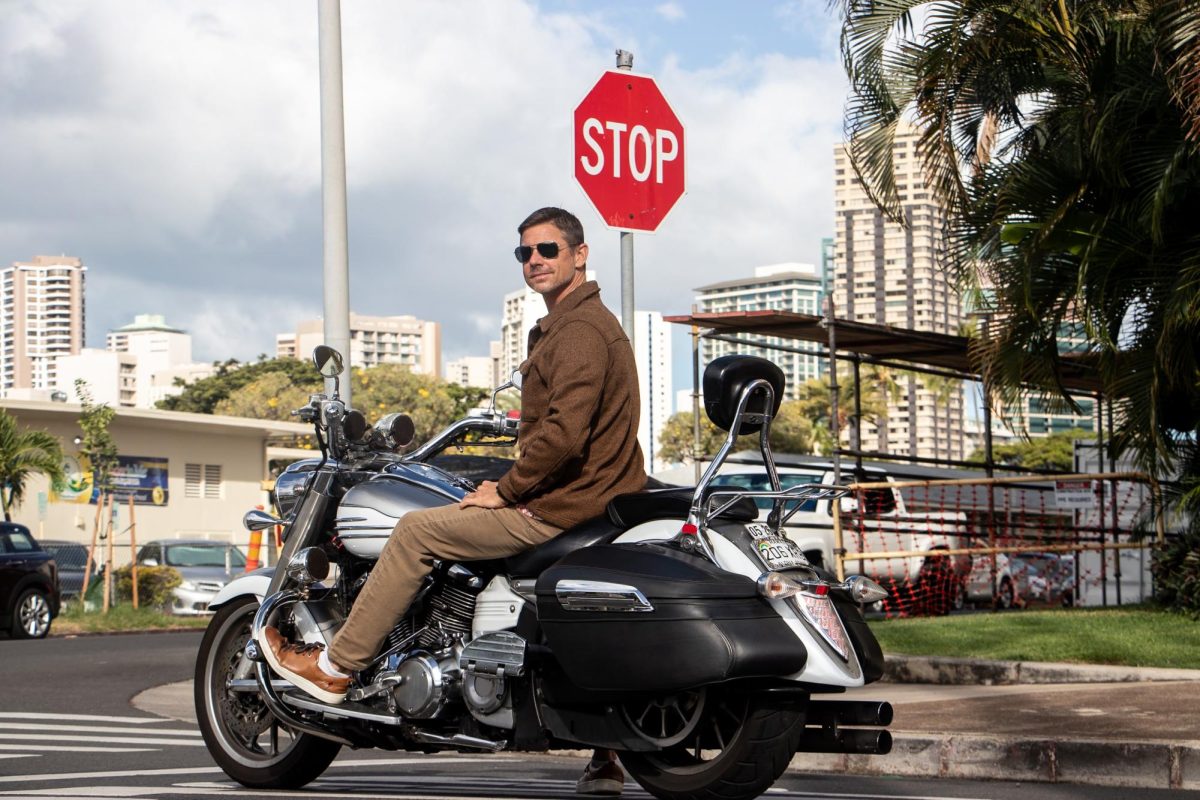Over the years, ‘Iolani has slowly taken action to overcome one of the biggest challenges the world is facing today, climate change. Dr. Tim Cottrell, with a desire to emphasize the significance of climate change, formed the Sustainability Fellowship program in an effort to reduce our carbon footprint here on campus. Carbon footprint is a measure of the amount of fossil fuels being used by an individual or a particular group. Greenplaces, a sustainability company dedicated to aiding businesses and institutions in reducing their carbon footprints, is currently collecting data concerning the amount of carbon emitted from different parts of campus, and ‘Iolani is expecting to receive these results mid-February.
With this effort to improve the environment, ‘Iolani as a community needs to be attentive to reducing its carbon footprint as gas emissions and climate change are caused by certain actions we take.
‘Iolani is a representative of a group that has a large carbon footprint. Some examples of this are the snack bar, with the products shipped from outside of the country, the commute to school, and the electricity powering our classrooms and our SmartBoards.
Dr. Cottrell and the Sustainability Fellowship student program took the first step to achieve a greener ‘Iolani by searching for sustainability partners. “With a greater need to emphasize issues that underlie climate change and take action, we researched companies that do institutional carbon audits,” says Dr. Cottrell. The group’s efforts successfully sought out Greenplaces. The company’s remarkable software program, which can record carbon emissions in all facets of an institution, assists business owners with creating a sustainability plan to reduce excessive energy consumption. This handy energy organization tool has also been utilized by schools on the mainland to detect how different types of energy contribute to carbon emissions. Durham Academy, a K-12 school in North Carolina, serves as an exemplary model of Greenplaces’ sustainability strategies. By using Greenplaces’ annual records of their school’s energy consumption, Durham Academy has successfully dedicated itself to creating greenhouse gas reduction goals to help students live environmentally sustainable lives and by doing so, hope to make them future leaders. Durham Academy strives to educate their students to understand what’s happening to the environment and how they can avoid causing anymore wreckage such as causing more biodiversity loss. The academy’s goals have also further inspired the partnership between ‘Iolani and Greenplaces.
After the Sustainability Fellowship program reached out to Greenplaces in July 2023 to initiate the collaboration for sustainability on campus, Mimi Franco, a Customer Success Manager at Greenplaces, has been the key liaison between Greenplaces and the Sustainability Fellowship group. Ms. Franco shared that Greenplaces first conducted baseline year research, which measured how much energy is consumed by the school in a regular year. This includes, but is not limited to, electric energy in our facilities, student and employee commute and the products consumed and purchased by our school. The sustainability fellowship program members were also assigned different tasks in analyzing the amount of carbon footprint being used on campus. For example, Logan Lee ’25 was in charge of the utility bills, meaning he worked with the administration to gather information about charges such as the water and garbage disposal bills to be sent to Greenplaces. Once the data is sent back, Dr. Cottrell and the Sustainability Fellowship program plan to make changes at school to reduce the school’s carbon footprint.
It’s easy to settle for convenience and efficiency in unsustainable practices, and climate change can often be the least of our concerns when we are busy with school, work and other extracurriculars or hobbies. Despite this, Ms. Sarah Johnson, who teaches the semester course Hawai‘i Sustainable Development, has hope for ‘Iolani students and says, “I see [this generation of students] bringing new thinking, new values and beliefs to the table and demanding more of government, demanding more of our communities and to care more for one another.” If students take the zero carbon footprint initiative seriously, there is a great possibility that the harmful effects of climate change that began several generations ago can be reversed by the young leaders who are passionate about finding solutions to climate change.
“I think that any change makes an impact,” Lei Crowley ’25 states. “Whether it be big or small, anything can help.” ‘Iolani is surrounded by nature such as the Ala Wai canal, and those things are also impacted by climate change. The amount of garbage, especially plastic loitering around the waters, also surprisingly adds damage to the environment. “We’re doing our part in decreasing the effect of mitigating climate change and by doing so, we’re improving both the natural environment and the environment that’s related to campus,” Logan mentions. Exemplary efforts to help the environment can influence other corporations and schools to follow suit.
One major issue at ‘Iolani is the usage of electricity. In trying to find the root of the problem, Lei took pictures of the different refrigerators around school. “I never realized how much energy refrigerators use,” she mentions. “Some of them don’t even store anything.” Lei shares her findings that there are mini fridges in almost every classroom. A possible solution to prevent all the wasted energy would be to have one large refrigerator on each floor that replaces all the mini ones.
“We’re so fortunate to live in Hawai’i, a place with such a unique native environment,” Logan states. If the local community wants to continue preserving the beautiful nature of the island, they can take better care of it and find ways to contribute, whether it be small or big, because anything counts.
Climate change is one of the biggest problems this generation faces. If nothing is done to mitigate it, there is no going back and we can no longer have the same natural environment we grew up seeing. “It’s our job as members of our community to pass down this home that we’ve had the privilege of living in to our kids in the same way we have received it,” Lei mentions. “There are a lot of things that the local community takes for granted such as the trees and the colorful reefs filled with sea life that are being put in danger.” She highlights the point that these things can instantly be gone due to the damages caused by gas emissions and global warming.
Taking action on climate change can improve both the environment and community relationships. “I see climate change as an opportunity for us to come together,” Logan says, talking about the common goals we share to better help the environment. “This new generation brings new thinking values and beliefs to the table demanding changes to be done by the government and demanding more from our communities,” Ms. Johnson mentions. When she was growing up, climate change wasn’t something that she saw in the news everyday or every month. It was just starting to be visible. Today, we are more aware of climate change and its effect on the environment compared to the previous generations.
“The goal is for students to engage in the work of reducing our carbon footprint.” Dr. Cottrell writes. Ms. Johnson adds on by mentioning that hopefully by the year 2045, ‘Iolani will become a net-zero carbon emission school. This plan can be achieved by taking different measures, even small ones such as unplugging outlets when unused and taking a bike once in a while.
Students can partake in club activities like the Citizens Climate Lobby and the Naturalist club. These clubs can even allow people to go outside of campus and talk with legislators. “Hearing from the voices of young people is important.” Lei mentions. “These people actually really value our opinions and sometimes even have the same values as us.”
“With the administration supporting the students, they are able to not only try to achieve sustainability on campus, but also to the world and what they can do in the future.” Logan mentions.
There are a lot of student involvement activities that can contribute to the environment. We as ‘Iolani students are privileged to be given the different opportunities the school provides for us. Now, it is time for the new generations of students to start taking action towards improving the environment in order to create a sustainable, happier future for everyone to thrive in. As Ms. Johnson states, “This is your reality.”




